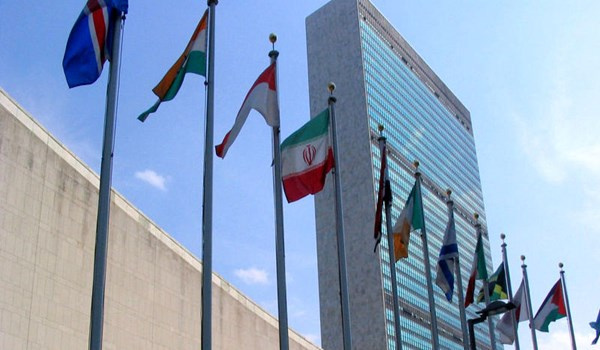Sanctions Undermine 1947 US Treaty with UN

When Yassir Arafat was denied a US visa to visit New York to address the United Nations back in 1988, the General Assembly defied the United States by temporarily moving the UN’s highest policy making body to Geneva providing a less-hostile political environment for the leader of the Palestine Liberation Organisation (PLO).
Arafat, who first addressed the UN in 1974, took a swipe at Washington when he prefaced his statement by saying “it never occurred to me that my second meeting with this honourable Assembly, since 1974, would take place in the hospitable city of Geneva”.
The Trump administration, which has had an ongoing battle with Iran, has imposed a rash of political and economic sanctions on Iranian Foreign Minister Javid Zarif - even as Washington, paradoxically, proclaims that the Iranian problem can be resolved only diplomatically while, at the same time, it keeps the negotiator-in-chief away from the US. The sanctions on Zarif will also prevent him from being a member of the Iranian delegation - and also from addressing the six high-level summit meetings scheduled for late September.
If Zarif is denied a visa, as expected, it will be a violation of the 1947 UN-US headquarters agreement under which Washington was expected to facilitate the smooth functioning of the world body. While the PLO was not a full-fledged UN member state, Iran is a founding member of the world body.
The Trump administration has already reneged or abandoned several international agreements, including the 2015 Paris Climate Change agreement, the 2015 Iranian nuclear deal, and most recently the landmark 1987 Intermediate-Range Nuclear Forces (INF) treaty with Russia which helped seal the end of the Cold War.
The Trump administration’s sanctions on Zarif at the end of July have dealt yet another blow to diplomacy and the settlement of dangerous disputes. There is a strong possibility that the US will violate its responsibilities as UN host country since the travel sanctions will block Zarif from attending UN functions, including the UN General Assembly opening session in late September (as well as subsequent sessions later on). Such a move would be in breach of the US-UN Headquarters Agreement of 1947.
Traditionally, the opening session brings high-level speakers from around the world. It is important not only as a moment for high-profile speeches, but also as a time for discussions and negotiations among world officials.
There are three deep problems on the American side. First, they unilaterally pulled out of a multilaterally-negotiated nuclear deal with Iran (the Joint Comprehensive Plan of Action or JCPOA) unanimously endorsed by the UN Security Council. The UNSC further called on all states to help implement the deal, to lift sanctions, and to assist Iran’s economic development. Therefore, by re-imposing unilateral sanctions, it is the US that is in material breach of the agreement and in violation of UNSC demands.
Second, the sanctions on Zarif contravene their stated position of a solution through diplomacy. You cannot engage in any diplomacy by placing a country’s foreign minister under sanctions. The third is the General Assembly attendance implication. On this, it would violate the 1947 HQ agreement. But in the hierarchy of seriousness, violating the JCPOA is actually more serious and shows the complete toothlessness of the UN and UNSC to hold to account any of the P5 (the 5 permanent members of the Security Council, namely the US, UK, France Russia and China).
The Trump administration is keen to put further pressure on Iran and to further collapse the much-discussed nuclear deal, signed after years of delicate negotiations in 2015. Apart from Israel and Saudi Arabia, there is little enthusiasm internationally for closing the diplomatic doors to this important agreement.
Governments world-wide also strongly oppose the Trump administration’s strong-arm tactics and the US disregard for an open UN, where all member states are able to speak. This would not be the only time that the US has refused entry to high-level foreign officials, but the push-back may now be especially strong. In light of the support for the nuclear deal in Europe, Washington could anticipate intense opposition to US high-handedness.
Source: Fars

